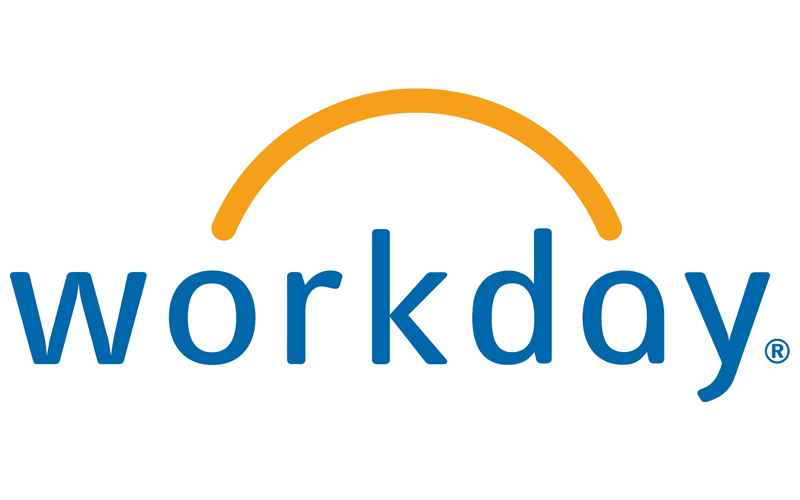Advances in Managing Data Create New Levels of Insight and Performance Accountability for Today’s Agile Organizations
SINGAPORE – Media OutReach – 30 October 2020 – Workday Inc. (NASDAQ: WDAY), a leader in enterprise cloud applications for finance and human resources, today announced availability of Workday Accounting Center and machine learning (ML)-driven predictive forecasts for Workday Adaptive Planning, as well as additional functionality across its finance offerings, to drive insights, agility, and efficiency. These innovations transform the way customers engage with data, bringing new levels of visibility and control to the office of the Chief Financial Officer (CFO).
Today’s finance teams are challenged to achieve greater agility amidst the ever-changing business landscape heightened by the pandemic. Real-time data and insights are key to agility, yet many finance organizations have disconnected data sources and legacy accounting systems, which can no longer keep pace in today’s changing world. Valuable time is spent collecting, reconciling, and validating data instead of delivering trusted insights to the organization. To address these critical challenges, Workday continues to advance its cloud planning and financial management solutions with ML and data management capabilities.
Creating Agility with an Intelligent Data Foundation
Workday is going beyond the boundaries of traditional ERP systems to solve a problem that has plagued the industry for decades–keeping up with the ever-increasing volume of operational data and turning it into accounting and insight faster and more efficiently. Now commercially available, with early adopters such as CNA and Shelter Insurance currently in production, Workday Accounting Center represents a fundamental change in the way finance manages operational data.
Workday Accounting Center enables customers to ingest operational data, enrich it with meaningful attributes, and transform it into accounting. This allows customers to manage operational and financial data from multiple sources with a single point of control across the enterprise.
For example, with Workday Accounting Center, an insurance company is able to load its operational transactions–such as claims or policy data–into the system, create accounting (journal) entries for those transactions, and then report and analyze on those transactions with full drill down and visibility into the source transactions, which is called data lineage.
This eliminates the need for finance teams to rely on information technology (IT), with cost savings estimated to be upwards of 50 percent to maintain accounting rules. Combining Workday Prism Analytics and Workday Financial Management creates an intelligent data foundation that also fuels ML-enabled transactions and processes.
Machine Learning Powers Intelligent Planning, Delivers Predictive Forecasts
Planning has become even more critical for organizations managing through the pandemic, with forecasting activity increasing up to 30X from pre-pandemic operations. To enable forecasting with even greater accuracy, Workday continues to evolve its intelligent planning capabilities, which allows planning without limits and anticipates what’s next with greater accuracy and confidence, harnessing ML at the core.
Using time series prediction–the process of modeling events over a period of time to make more accurate predictions–Workday applies the power of ML to enable predictive analytics with Workday Adaptive Planning. The ML algorithms use historical and current data to predict likely outcomes for revenue, expenses, and other critical business variables creating a predictive forecast.
Predictive forecasts are created based on thousands or even hundreds of thousands of data points aggregated from across the enterprise, including sales, HR, marketing, and manufacturing data, for example. Using anomaly detection in Workday Adaptive Planning, anomalies are identified and automatically flag a planner about a potential issue. New reporting capabilities make it easy to compare an ML-driven forecast against a planner’s forecast to detect potential problems before either forecast is acted on, so organizations can make better decisions with confidence.
With predictive forecasting embedded in the analytics engine of Workday Adaptive Planning, it will continue to learn over time, and the more data is added, even greater insights will be gained. The predictive forecasting capability is available now to all Workday Adaptive Planning customers.
Continuous Innovation for the Office of Finance
The latest release from Workday also includes key advances for customers in the office of the CFO focused on enabling deeper insight and accountability for performance. Notable advancements include:
• Embedded ad hoc analysis on real-time data.
The availability of Discovery Boards reflects Workday’s enduring focus on embedding analytics in core finance applications. With Discovery Boards, accounting and finance teams are able to easily see and analyze data in real time on live Workday transactions–all in one system. With access to nearly 200 data sources across core financial management and spend management, customers can easily and securely perform ad-hoc analysis with an embedded drag-and-drop visualization tool.
• Unified planning and execution.
Workday customers can now publish plans from Workday Adaptive Planning directly to Workday Financial Management and vice versa, making it easy to compare actuals to plan in the same system, further streamlining finance processes. This provides easier access for real-time analysis and compresses the planning and execution cycle for greater agility.
Comments on the News
“We continue to deliver on our vision for the changing world of finance by expanding data management, self-service analyses, and machine learning-fueled processes to help finance leaders better navigate continuous disruption and change,” said Barbara Larson, general manager, Workday Financial Management. “These innovations unlock the power of data in new ways, empowering customers with eye-opening insights that were previously difficult–or even impossible–to glean. Together with our customers we’re creating frictionless finance processes and best practices that deliver greater value to the organization.”
“With Workday Accounting Center, we’ve been able to retire our custom legacy accounting hub solution and have simplified our technology environment, improved flexibility and scalability, and provided greater business ownership and control of software to our accounting and finance team,” said Bharat Shahdadpuri, AVP, Workday Finance & Data Management, CNA, one of the largest U.S. commercial property and casualty insurance companies.
“Now, financial data is provided to accountants using business language, without the need for technical interpretation. Financial reporting is done in Workday, and we’ve been able to improve the systems used for financial analysis, data lineage, and error correction. And, we’re pleased that we’ve already reduced our cost of ownership while also being able to introduce new capabilities faster.”
“CFOs and CIOs recognize that they must embrace new digital technologies in order to manage the ever-increasing volume and sources of data required today,” said R “Ray” Wang, founder and principal analyst, Constellation Research, Inc. “And because it’s so challenging to move off of legacy systems, leading companies recognize that they need a solution that can scale and evolve over the next decade and beyond. Intelligent data, machine learning, and a robust ecosystem are critical factors for companies when choosing their next partner for financial management systems.”
Additional Information
• See a demonstration of Workday Accounting Center
• See a demonstration of Workday Adaptive Planning
• Read the blog “How planning is evolving to keep pace with a changing world”
Forward-Looking Statements
This press release contains forward-looking statements including, among other things, statements regarding the expected performance and benefits of Workday’s offerings. The words “believe,” “may,” “will,” “estimate,” “continue,” “anticipate,” “intend,” “expect,” “seek,” “plan,” “project,” and similar expressions are intended to identify forward-looking statements.
These forward-looking statements are subject to risks, uncertainties, and assumptions. If the risks materialize or assumptions prove incorrect, actual results could differ materially from the results implied by these forward-looking statements.
Risks include, but are not limited to, risks described in our filings with the Securities and Exchange Commission (SEC), including Form 10-Q for the fiscal quarter ended July 31, 2020 and our future reports that we may file with the SEC from time to time, which could cause actual results to vary from expectations. Workday assumes no obligation to, and does not currently intend to, update any such forward-looking statements after the date of this release.
Any unreleased services, features, or functions referenced in this document, our website, or other press releases or public statements that are not currently available are subject to change at Workday’s discretion and may not be delivered as planned or at all. Customers who purchase Workday, Inc. services should make their purchase decisions based upon services, features, and functions that are currently available.
© 2020 Workday, Inc. All rights reserved. Workday and the Workday logo are registered trademarks of Workday, Inc. All other brand and product names are trademarks or registered trademarks of their respective holders.
About Workday
Workday is a leading provider of enterprise cloud applications for finance and human resources. Founded in 2005, Workday delivers financial management, human capital management, planning, and analytics applications designed for the world’s largest companies, educational institutions, and government agencies. Organizations ranging from medium-sized businesses to Fortune 50 enterprises have selected Workday.


















